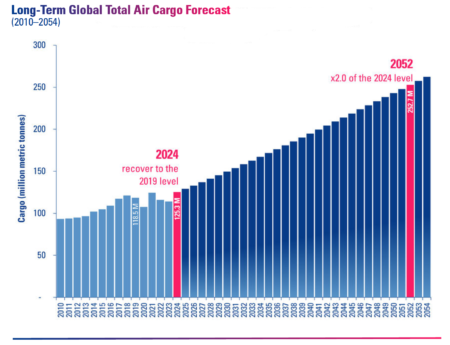FedEx Corp. will cut daily flights across the Atlantic, the Pacific, and between Asia and Europe as it starts the process of aligning its cost structure with what the company has stated is diminishing global demand. The company says cost-cutting will begin bearing fruit in the next 2 months. FedEx (NYSE: FDX) informed investors on Thursday night, following the formal release of its fiscal 2023 first-quarter results, that it will reduce 11% of its trans-Pacific flights, 9% of its trans-Atlantic flights, and 17% of its flights between Asia and Europe.
The company pre-announced very poor quarterly results, which included a more than $600 million year-over-year loss in operating revenue at FedEx Express, the division that houses the company’s air and overseas operations. FedEx said that it couldn’t reduce the unit’s operations fast enough to compensate for the sharp drop in cargo leaving Asia-Pacific and Europe. As per FedEx, the financial effects of the flight reductions will begin to be felt in October and November. The corporation assured us there would be no impact on service standards. It does not intend to lay off any pilots.
FedEx said that the majority of the issues were macroeconomic during the tense and solemn analyst call. The fact that its clients missed their own projections suggested that customer demand had sharply decreased by the quarter’s end. The fiscal year of FedEx begins on June 1. Brie Carere, executive vice president and chief marketing and communications officer, stated that this was a market trend rather than a FedEx trend. According to Carere, everyone is affected by the decline in demand.
Following its acquisition of TNT Express in 2016, FedEx experienced challenging six-year European integration problems that continued to hamper its network integration in Europe. In March, the business finished integrating the physical networks. According to Carere, FedEx Express is still having trouble regularly meeting time-definite delivery requirements across international borders. FedEx has temporarily abandoned growth plans in favour of cost-cutting and margin protection due to the expectation of macroeconomic deterioration for the remainder of its fiscal year. On Thursday evening, it unveiled a plan to slash expenses by an extra $4 billion over the course of the fiscal years 2024 and 2025, in addition to the $2.2 to $2.7 billion now being budgeted.
FedEx also expects to park an unspecified number of planes during the current fiscal year, in addition to fewer flights. According to a corporate spokesperson, the capacity loss caused by parked planes is equal to eight narrow-body aircraft. In an effort to increase productivity, FedEx will also reduce the number of ground delivery routes in Europe. At FedEx Ground, its ground delivery unit, FedEx will consolidate sortation operations, reduce a portion of its costly Sunday delivery network, and defer or cancel projects. FedEx announced the closure of 140 FedEx offices and five corporate office locations.
Company executives fielded analyst questions that were, as expected given the events of the past week, pointed and uncomfortable. Brandon Oglenski of Barclays posited that the company needs to reevaluate the model it’s followed for the past 20 years and change or jettison parts of its model that have repeatedly not worked and may never work. Another, Jack Atkins of Stephens, noted a “clear lack of outside talent” at FedEx and questioned if the right people were in place to run the company.










